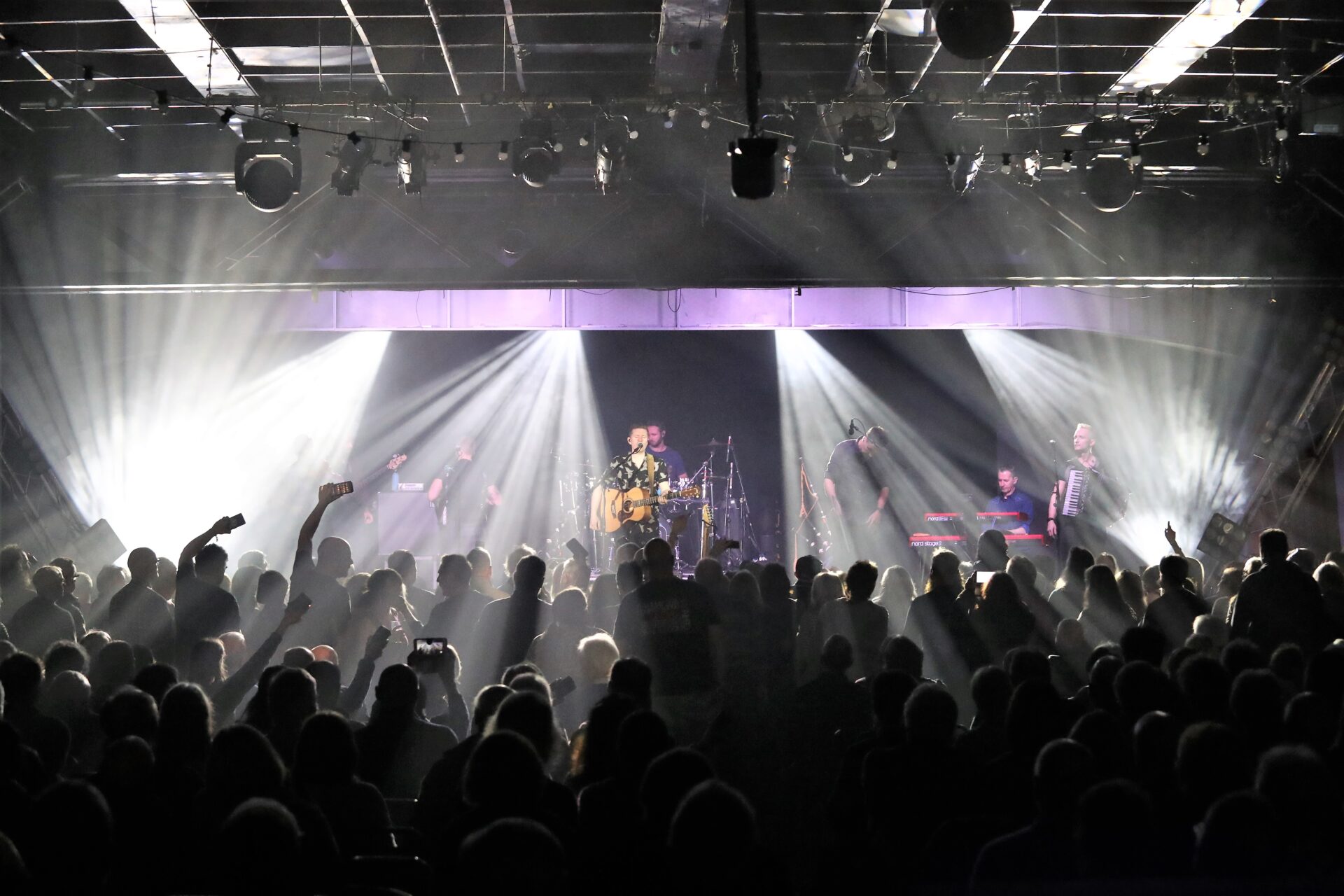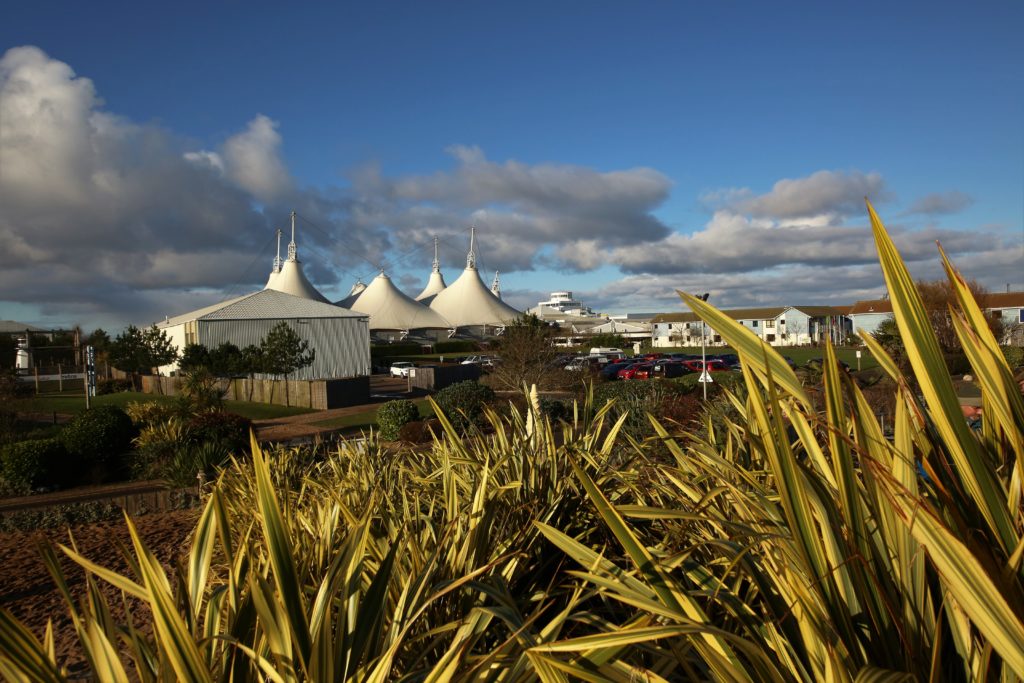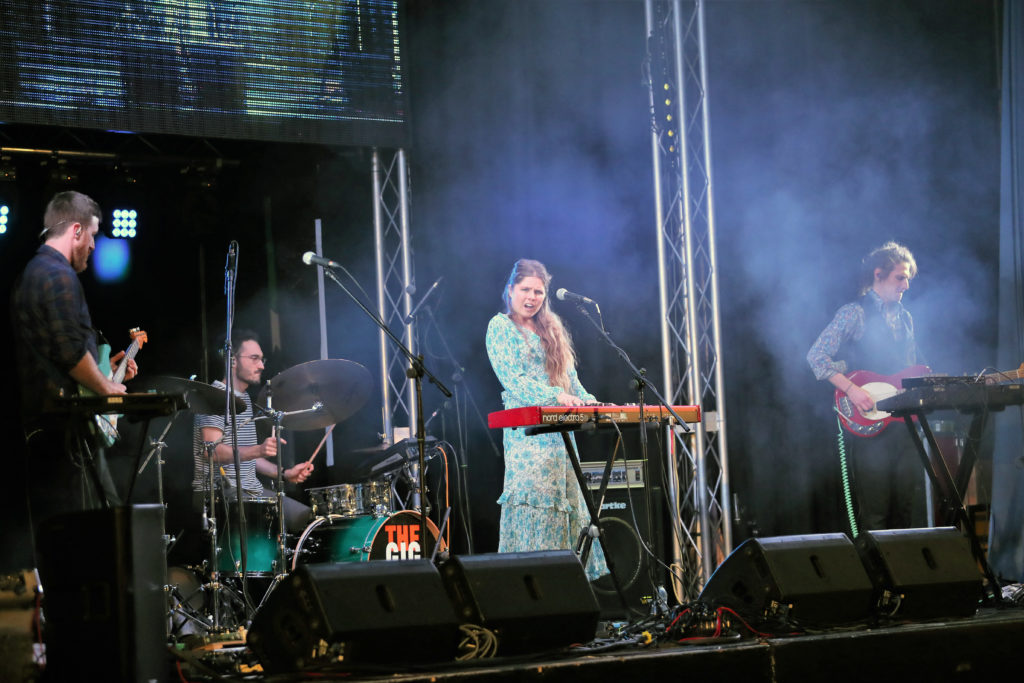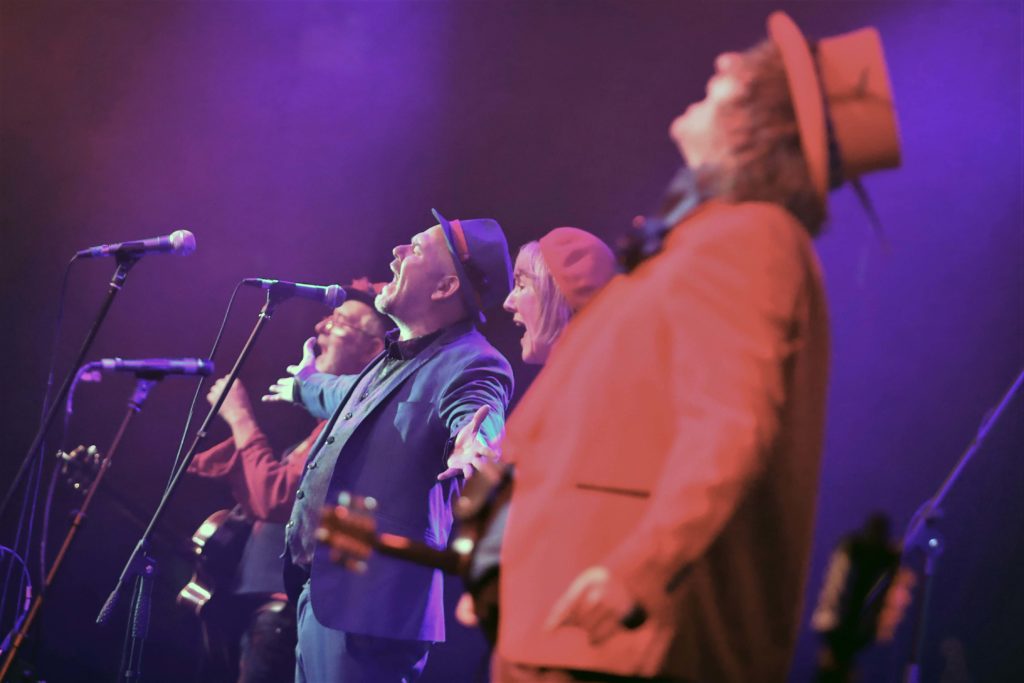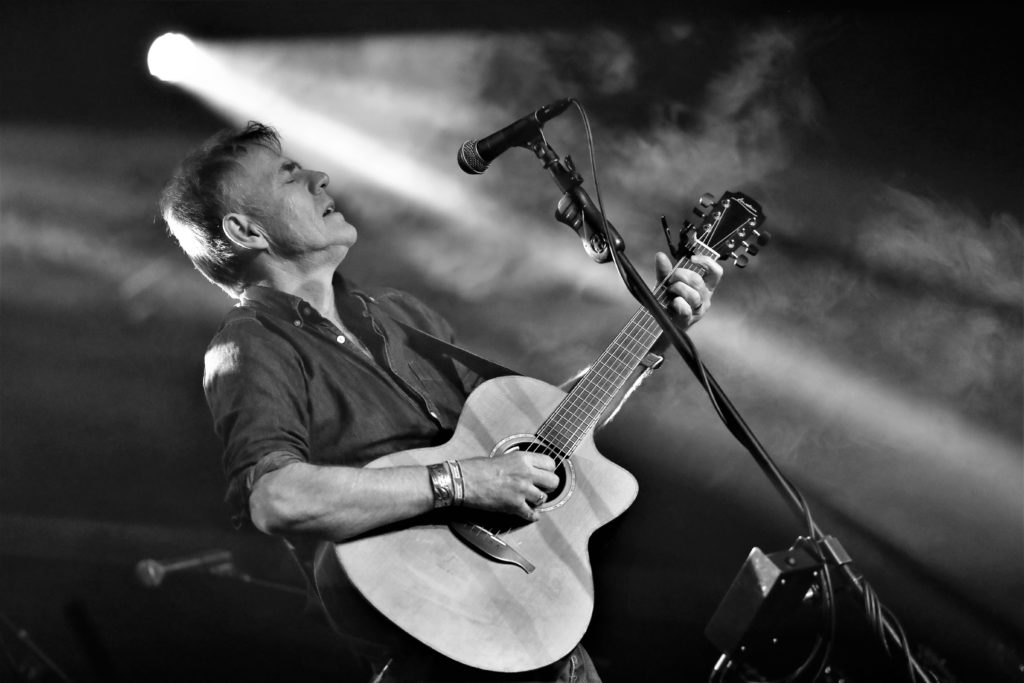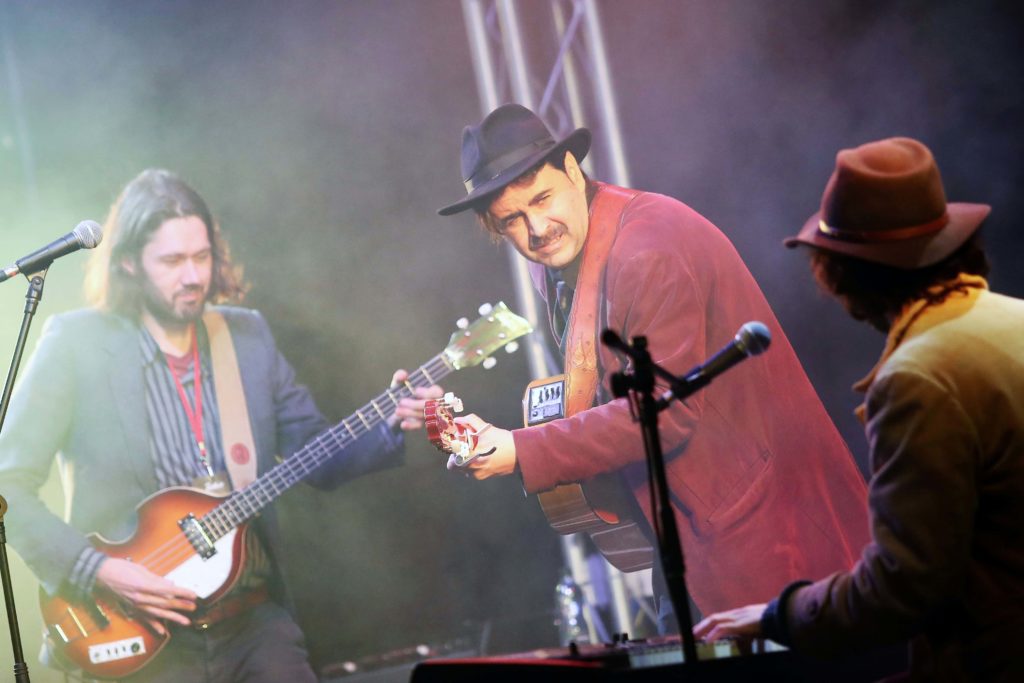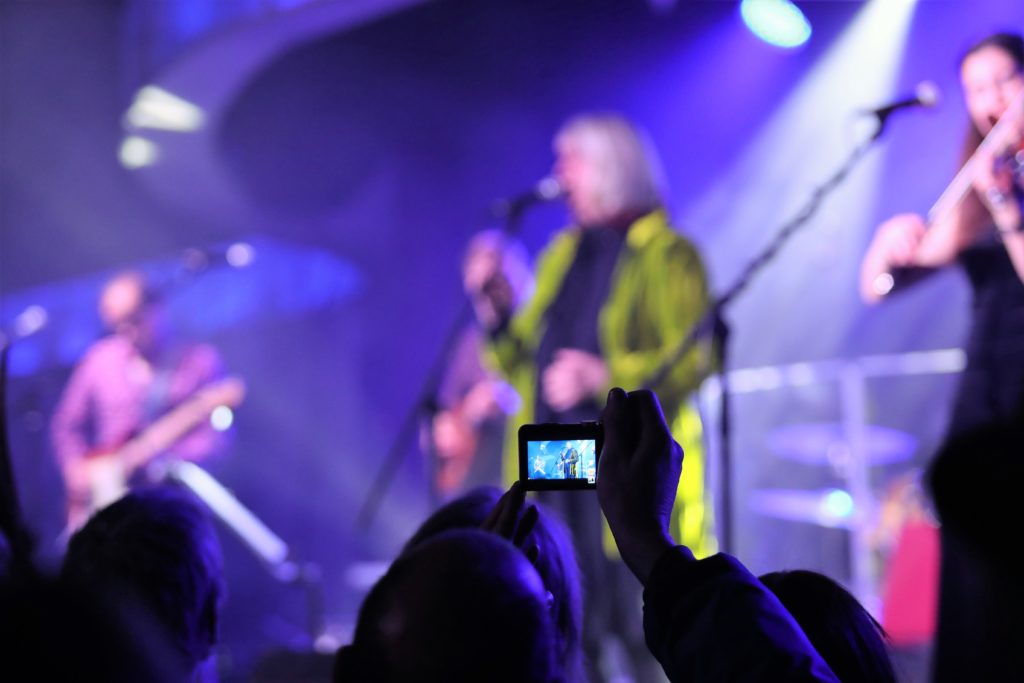When: 29th November – 2nd December 2019
Where: Butlin’s Family Entertainment Resort, Ingoldmells, Skegness, Lincolnshire, England
For the tenth year in succession, a good few thousand folk aficionados make their annual journey to the east coast of Lincolnshire and the Skegness Butlin’s holiday resort for The Great British Folk Festival. Since its inception in 2000, the event has firmly established itself as a staple on the UK festival calendar. Taking its regular position over the weekend that straddles the end of November and the beginning of December, the Great British Folk Festival not only brings to a close the UK music festival year but on this its tenth anniversary it also provides the grand finale to the music festival decade.
The holiday resort itself – the site of the UK’s first ever Butlin’s holiday village – is actually three miles north from Skegness in the village of Ingoldmells. Step out of the rear entrance to the site and you can look right across huge open expanses of long, sandy beaches and, give or take a turbine or two from the Lincs Wind Farm, enjoy uninterrupted views of the North Sea. Inside the site itself you are afforded the warmest of welcomes by the Butlin’s staff for whom nothing seems like it is too much trouble over the course of the entire weekend. It is their genuine hospitality, consistency of courteous service and great attention to detail that in so many respects makes this occasion so enjoyable.
For the cost of a very reasonably priced ticket, guests can enjoy three nights’ accommodation in warm, comfortable surroundings as well as having the opportunity to take advantage of a whole raft of other on-site entertainment including Big Screen Sports, ten pin bowling, American pool, the Splash indoor swimming pool and various amusement arcades.
But it is the music that everyone has primarily come here for and in that regard The Great British Folk Festival has once more put together another excellent line-up comprising some of the very best acts, both old and new, from the world of British folk music. From late afternoon on Friday until after midnight on Sunday evening more than 40 acts will appear over the resort’s four main musical stages.
Friday
We arrive in the Skyline Pavilion in time to catch Ålesund on the Introducing Stage. Each day, four emerging acts will perform on this stage with the daily winner – voted for by the audience – being invited back next year to play on one of the festival’s two main stages.
Ålesund may well take their name from a town on the west coast of Norway but are actually based in a city in the south west of England. Their expansive, atmospheric sound, however, owes more to the glacial landscapes of that Scandinavian country than ever it does Bristol and their sublime cover of Foals’ ‘Exit’ is invested with a suitably rugged beauty.
The opening act on Centre Stage this evening is The Salts, one of last year’s Introducing Stage winners. And with a similar geographical paradox to that of Ålesund, this four-piece band sing of sea shanties and bottles of rum despite hailing from land-locked Surrey.
Reg Meuross is clearly a decent sort. He sees the world through the lens of a clear and well-developed social conscience. His songs also reference figures of great historical importance, including a Rhode Island lighthouse keeper, Welsh poet Dylan Thomas, American country legend Hank Williams and the violinist on the Titanic. Following the success of his appearance here two years ago the Somerset singer-songwriter apparently sold more than £2000’s worth of CDs at the merch stall immediately after the show. You strongly suspect that after yet another memorable performance he will have had to be sending out for even more supplies of his product.
The first major scheduling clash of the festival follows when the Irish singer Cara Dillon and Scots’ chanteuse Barbara Dickson “face off” against each other at more or less the same time. Having two of your headliners starting their respective sets within 15 minutes of each other is an undoubted frustration for many and hard choices therefore have to be made, especially given the fact that the “Full House” board is soon being placed outside the entrance to Centre Stage for Dickson. But given that the two main stages only hold 2,000 and 1,500 people respectively, it is a physical impossibility for everyone on site to get into one of these venues all at once.
Cara Dillon and Barbara Dickson are both seasoned and polished professionals. They have both been here before and you know that they will deliver. And, of course, they do. For Dickson’s part she opens with two delightful covers – first Gerry Rafferty’s exquisite ‘The Royal Mile’, followed by George Harrison’s ‘If I Needed Someone’ – whilst a figurative change of horses in midstream enables me to catch Dillon’s spellbinding acapella reading of ‘The Winding River Roe’.
Skerryvore and Merry Hell increase the evening’s tempo as each in their own robust way add physicality, spirit and impetus to the night’s proceedings. Their music harnesses a growing sense of solidarity, enabling us all to stand together in what are the increasingly difficult times in which we now find ourselves.
Saturday
Last night Joe Martin had been playing in front of a sell-out audience in his hometown of Clitheroe whilst supporting one of next year’s Great British Festival headliners Lindisfarne. He has since travelled nearly 200 miles across country to be here for early afternoon and is nothing short of a revelation. His song ‘Daddy Gene’ (seen through the eyes of the daughter of the last man to walk on the moon, Gene Cernan) is deeply touching. With a voice not unlike an English Lyle Lovett and a fistful of country-textured tunes Joe Martin is an undoubted cut above most similar songsmiths.
Outside under clear cobalt-blue skies it is one of those perfect, gloriously crisp winter’s days. It therefore seems like an absolute travesty to be stuck indoors but both Alden Patterson and Dashwood and The Trials of Cato make a very strong sonic case for being so. Both are contemporary folk trios, imbuing that most traditional of musical genres with fresh energy and meaning.
On this evidence alone the festival’s continuing creative investment in relative youth is already reaping rich rewards. And as the late afternoon merges into early evening these returns multiply. First Rhiannon Scutt and then Harriet Rose grace the Introducing Stage impressing with their relaxed confidence and the unaffected exuberance of their music. It is impossible to put a cigarette paper between their nascent talents and it comes as a complete surprise to find out later that neither had been the day’s stage winner.
“Here come the young, they might just save the day.” Someone who recognises this very fact is Martyn Joseph. He may have been around for considerably longer than his predecessors earlier today but the Welshman’s artistic fire shows absolutely no signs of abating. Just as it had been when he was last here six years ago, his is the performance of the entire weekend. Joseph concludes with the powerful ‘NYE: Song for the NHS’ reminding us of who we really are and what we should truly believe in.
At almost ten years Martyn Joseph’s senior is Tom Robinson, yet he also still remains improbably young. And like many of the weekend’s performers, Robinson rails against injustice and inequality and through his words and music confirms that the protest song is not dead. He balances his more serious messages with great levity, as firmly evidenced by a wonderful anecdote about Alex Harvey and the late, great Glaswegian’s reflections upon the Tom Robinson Band’s brilliantly brave for its time, non-conformist anthem ‘(Sing If You’re) Glad To Be Gay’.
‘Scots, wha hae…’ As Saturday night gathers momentum, Eddi Reader is the first of three consecutive acts to appear who all hail from north of the border. Well it is, after all, St. Andrew’s Day. If ever Reader’s career in music should grind to an unceremonious halt an alternative vocation in stand-up comedy most surely awaits. Her description of a family party in which she assumes the singing voices of many of her West of Scotland relatives is both unerringly accurate and highly amusing. But just to prove that her musical profession isn’t quite over yet she signs off with an impeccable, deeply moving reading of Henry Mancini and Johnny Mercer’s classic, ‘Moon River’.
And then in the best Scots’ tradition it is the turn of the skirl o’ the pipes as both Red Hot Chilli Pipers and Peatbog Faeries go head-to-head in the clash of the Caledonian titans. Judging by the droves of people heading for the exit doors during the former’s set, you fancy that Peatbog Faeries may just have won that particular battle. I am not sure that the Great British Folk Festival purist is quite ready to fully embrace the Red Hot Chilli Pipers’ unique Celtic take on heavy metal. It is either that or it was just way past their collective bedtime.
Sunday
After the relative tumult of the night before, Sunday afternoon is a far gentler affair. The term ‘one hit wonder’ is probably most unfair on Charlie Dore though the English singer-songwriter is most likely best remembered for ‘Pilot of the Airwaves’ a song which troubled the Billboard chart way back in 1979. She does play Pilot, of course she does. But her other material confirms that she still has a keen ear for a great melody and the ability to couple this to thoughtful lyrics of emotional heft. Performing for the first time this year with a full band, Dore is clearly relishing the experience.
Gabriel Moreno and the Quivering Poets, helmed by the London-based Gibraltarian Moreno, bring to mind the transcendence and spirituality of Leonard Cohen from his The Future-era, a perhaps most apposite touchstone given that they rightly secure the last Introducing Stage winner’s award and will be back here again next year.
With their stage festooned in holly, ivy and all that glitters and gold, A Winter Union remind us that Christmas is only 24 days away. They raise the festive spirit with their seasonal songs, including exquisite covers of Joni Mitchell’s ‘River’ and The Band’s ‘Christmas Must Be Tonight’.
They give way in Centre Stage to Slim Chance, the band that Ronnie Lane formed after leaving the Faces. They stay true to Lane’s communal vision and retain much of his natural rustic charm. Hell, they even play ‘Debris’, a beautiful, heartbreaking ballad and the perfect counterpoint as the B-side to the more raucous Faces’ 1971 single ‘Stay With Me’. It still remains one of my favourite songs of all time.
There still remains the no little matter of Peter Donegan – the son of skiffle legend, Lonnie Donegan – and those fantastic Highland musicians Skipinnish to come but the final countdown to this year’s festival begins in earnest one act earlier when the event’s main headliner Steeleye Span take to the stage. One of the most venerable and influential names in English roots music, they have been around for years – 50, to be precise – and their experience tells in a celebratory exhibition of glorious harmony vocals and carousing folk-rock bringing yet another triumphant Great British Folk Festival to a suitably stirring and successful close.
Photos: Simon Godley
More photos from The Great British Folk Festival 2019 are HERE

